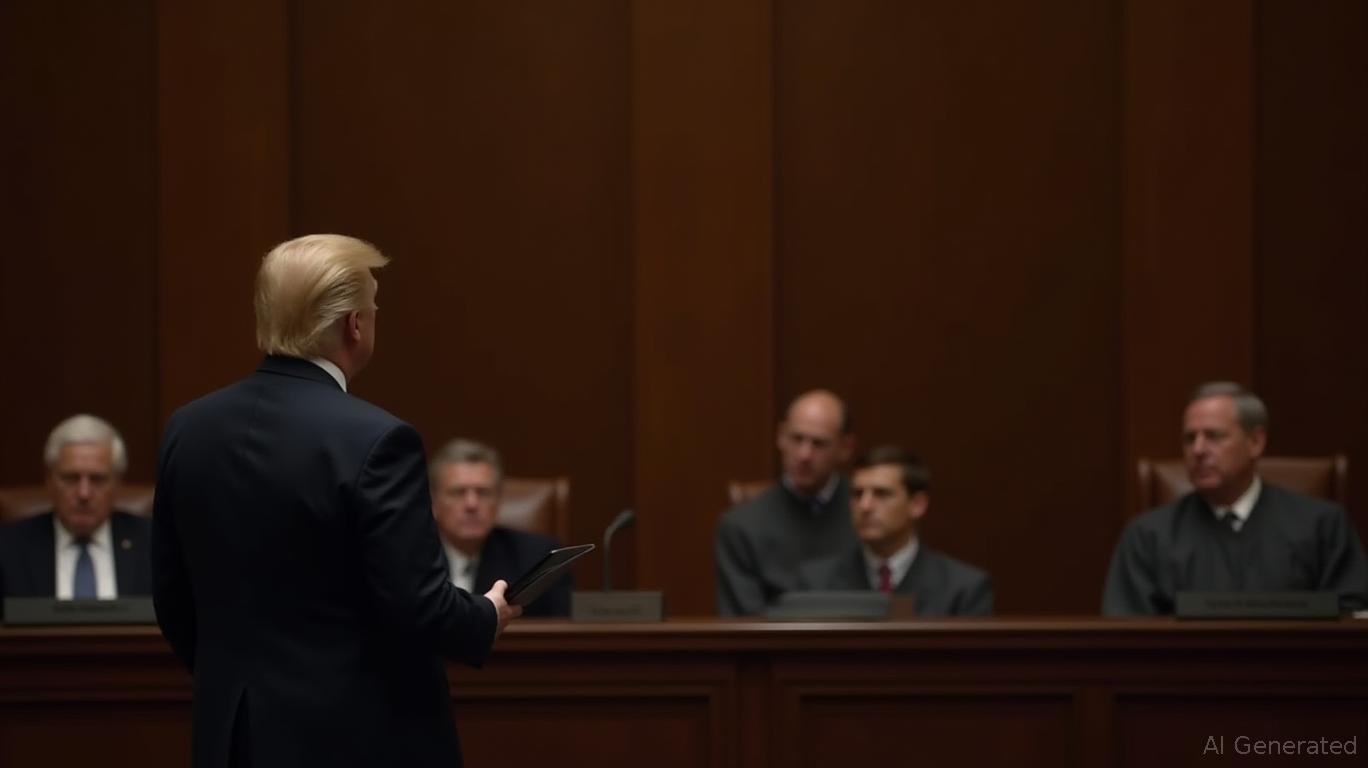As Canadian Tariffs Increase, Supreme Court Scrutinizes Trump’s Authority on Emergency Trade Measures
- U.S. President Trump imposed 10% tariffs on Canadian imports after Ontario aired a $75M anti-tariff ad featuring Reagan, escalating bilateral tensions. - Canada announced targeted steel/aluminum tariff exemptions and shifted trade focus to Southeast Asia, as Trump froze negotiations and imposed 50% tariffs on Canadian steel/aluminum. - Alcoa Corp. reported $69M in costs from Canadian tariffs, while U.S. aluminum premiums surged 113%, highlighting economic impacts. - Legal challenges loom as the U.S. Supr
On October 24, 2025, President Donald Trump announced a new 10% tariff on goods imported from Canada, further straining relations after Ontario aired a $75 million anti-tariff commercial during the World Series, featuring the voice of former U.S. President Ronald Reagan. The advertisement, which openly criticized Trump's trade approach and was not immediately pulled, led Trump to accuse Canada of "fraud" and "cheating," resulting in the sudden halt of trade talks, as reported by
Ontario Premier Doug Ford was behind the ad, which referenced Reagan's 1987 comments on tariffs, arguing that such measures are damaging to both consumers and businesses. Since his re-election, Trump has made tariffs a key part of his economic agenda. In response to the ad, he suspended negotiations with Canadian Prime Minister Mark Carney, who has described the discussions as "constructive" but stressed that Canada cannot dictate U.S. trade policy, according to Cryptopolitan. This development is the latest in a series of disputes, including Trump's previous 50% tariffs on Canadian steel and aluminum, which have negatively affected industries in both countries, as outlined in

Canadian authorities have tried to soften the blow by introducing targeted tariff exemptions. Finance Minister François-Philippe Champagne announced relief measures for certain U.S. and Chinese steel and aluminum imports to help key domestic sectors such as public health, national security, and agriculture, according to
The U.S. aluminum sector remains at the center of the trade dispute.
Canadian labor unions have stepped up their demands for government intervention as layoffs tied to tariffs increase. Unifor, the largest private-sector union in Canada, called for urgent government procurement measures to save the PACCAR truck factory in Quebec, which recently announced 300 more layoffs due to U.S. tariffs. Union representatives argued that local governments should prioritize domestic purchasing to safeguard jobs and industrial skills, according to
On the legal front, Trump’s authority to impose tariffs is being challenged in the U.S. Supreme Court, which will hear arguments on November 5 regarding the president’s power to enact tariffs under emergency provisions. Trump has defended the tariffs as essential for national security and economic stability, even as courts have found parts of his policy unconstitutional, as reported by Global News. The Justice Department has cautioned that lifting the tariffs could bring “financial ruin” to the U.S., while opponents claim the measures infringe on Congress’s trade authority.
As the dispute continues, Carney’s administration is navigating a complicated environment. While Trump has accused Canada of trying to sway the Supreme Court case with its ad, Ottawa insists its actions are lawful. Carney’s emphasis on ASEAN and other trade partners signals a broader effort to lessen reliance on the U.S. market, even as talks over steel, aluminum, and energy remain at a standstill, according to Cryptopolitan.
Disclaimer: The content of this article solely reflects the author's opinion and does not represent the platform in any capacity. This article is not intended to serve as a reference for making investment decisions.
You may also like
Emotionless Finance: Why AI-Led Trading Will Shape the Next Bull Market?

Oslo Airport Now Accepts Bitcoin Payments Via TRN and Satoshi Consult